There’s one big problem with Wagner’s Siegfried, and the clue’s in the name. None of Wagner’s mature works hangs so completely upon a single individual. The character himself isn’t really the issue either, however troublesome he might superficially appear (a ‘randy overgrown schoolboy’, if you believe the misguided programme note for this Usher Hall performance). As so often, confusion falls away once you assume that Wagner — who, after all, wasn’t a complete amateur — knew what he was doing, and take Siegfried as the life-force his creator intended.
Someone’s still got to sing the damn role, though, and that’s an Olympian challenge. ‘Most people have never heard a really fine Siegfried in the flesh — probably only a couple have ever existed,’ suggests Michael Tanner, and I wish I could have heard his thoughts on Simon O’Neill’s performance. Anyone who can sing Siegfried deserves respect, and it’s possible that I’ve simply never caught O’Neill on a good day. It’s equally possible that my response to the sound he made — tight, monochrome, hard-edged — was a matter of personal taste. He phrased articulately, and when he pushed himself over the orchestra’s climaxes, there was a tingling brightness to his voice that was undeniably impressive.
But the fact remained that this wasa Siegfried without a really convincing Siegfried — which, however you slice it, is problematic. It didn’t help that the staging of this concert performance seemed to have been thrown together on a ‘come as you like’ basis. Christine Goerke as Brünnhilde and Clive Bayley as Fafner wore variants on evening dress, while in his short-sleeved check shirt Mime (Gerhard Siegel) looked like a harassed dad dressed for a spot of DIY. And although Siegfried famously disregards the conventions of gods and men, it’s still hard to credit that the Hope of the World would wear flip-flops.
Unfair? Perhaps, but Opera North has raised the bar for Wagner in concert, and with Mime and the Wanderer (Iain Paterson) energetically acting out their roles while O’Neill hovered around a music stand, every inconsistency emphasised the gap between a concert staging and a gesamtkunstwerk. As the Wanderer explained his vision of redemption, Anna Larsson’s anguished, dignified Erda reached sensuously out to touch his arm — a brief glimpse of the infinite psychological complexities that a good director can uncover in Wagner. But there was no director credited here, and the possibility, along with countless others, was left unexplored.
Yet purely as music, this was a colourful account of Wagner’s score. Sir Mark Elder built everything upwards from the low timpani rumble that begins Act One, layering the sound of the Hallé Orchestra so that when, for instance, Mime yelled in terror at the thought of the dragon Fafner, the orchestral scream that engulfed him felt like something latent and elemental breaking through the music’s crust. The woodland shimmering of Act Two spread its glow across vast distances, and the sweetness and clarity of the Hallé’s horns and woodwinds cheerfully rivalled Danae Kontora’s sparky Woodbird.
Siegel, meanwhile, sang with such character that his Mime was almost loveable. Paterson laid out the Wanderer’s puzzles in great rolling streams of silvery tone. Samuel Youn was a fierce, adamantine Alberich and Goerke, when she finally sang, soared over the Hallé’s six harps (arrayed along the back of the orchestra for maximum glitter) with a richness that seemed to embrace all that had gone before. The audience roared, and Elder stood open-mouthed. With human frailty duly acknowledged,a committed performance of any part of the Ring is still one of the most exalted experiences that art has to offer.
Two orchestral concerts each featured rarities by Scottish composers. The National Youth Orchestra of Scotland, under Paul Daniel, performed the two surviving movements of Behind the Lines by Cecil Coles, who died near the Somme in 1918. NYOS played with poetry and style: the horn solos in the second movement ‘Cortège’ were heavy with tragedy, and the lad on the suspended cymbal is a true artist. It seemed mean (not to say ageist) of the Edinburgh International Festival to relegate such life-enhancing musicianship to a midweek teatime.
Later, Martyn Brabbins conducted the BBC Scottish Symphony Orchestra in Thea Musgrave’s Turbulent Landscapes: six short symphonic poems inspired by Turner, and painted by Musgrave in rich orchestral oils. It was handsomely done. The programme included colour reproductions of Turner’s originals, Brabbins encouraged soloists within the orchestra (including tuba and piccolo) to play standing up and the 90-year-old composer rose from her seat in the grand circle to acknowledge the applause.
As with NYOS and the Wagner, the performance was punctuated by mobile phones, audience conversation (the gentleman behind me in Siegfried whistled along with the Woodbird) and sundry clatterings. I don’t attend enough concerts in Edinburgh to say if this is typical.
Got something to add? Join the discussion and comment below.
Get 10 issues for just $10
Subscribe to The Spectator Australia today for the next 10 magazine issues, plus full online access, for just $10.
You might disagree with half of it, but you’ll enjoy reading all of it. Try your first month for free, then just $2 a week for the remainder of your first year.

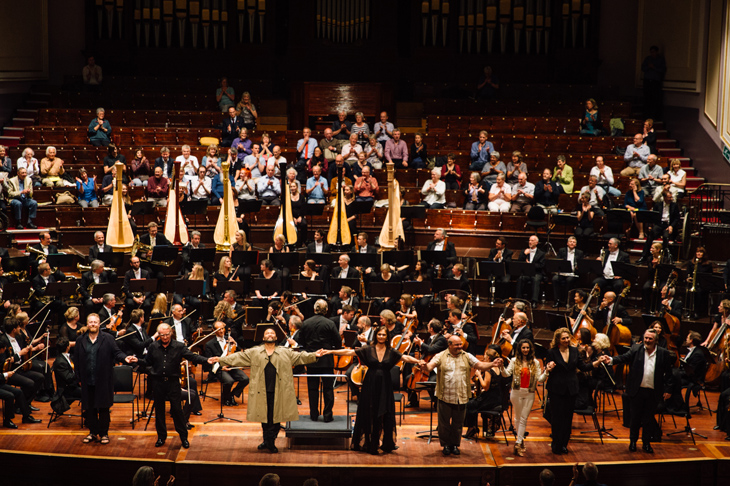
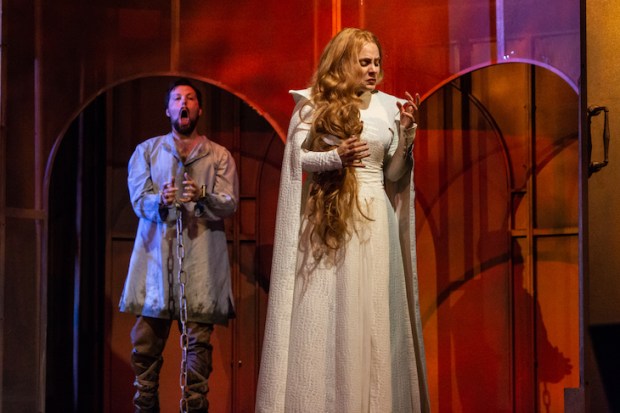

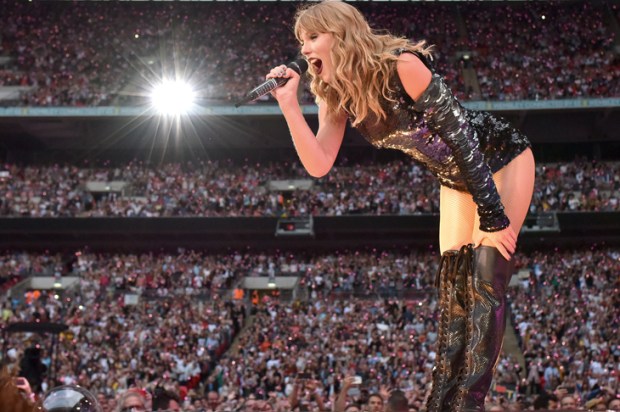
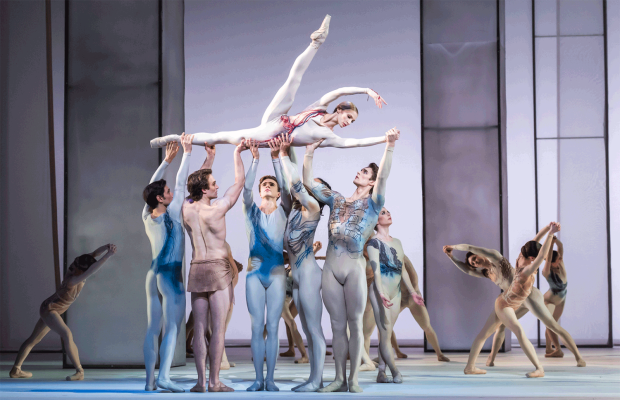
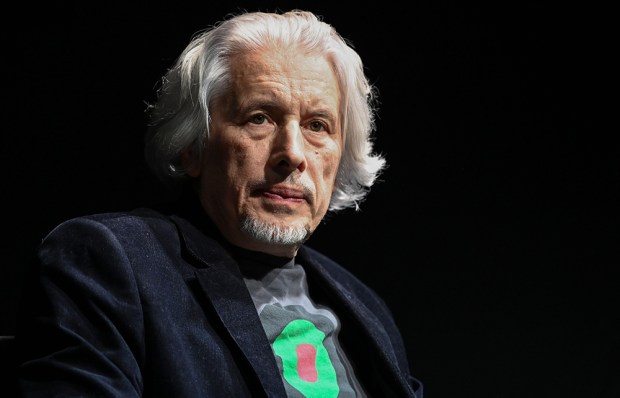
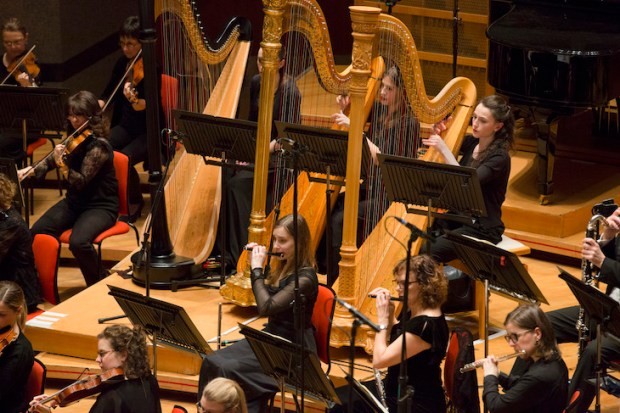






Comments
Don't miss out
Join the conversation with other Spectator Australia readers. Subscribe to leave a comment.
SUBSCRIBEAlready a subscriber? Log in